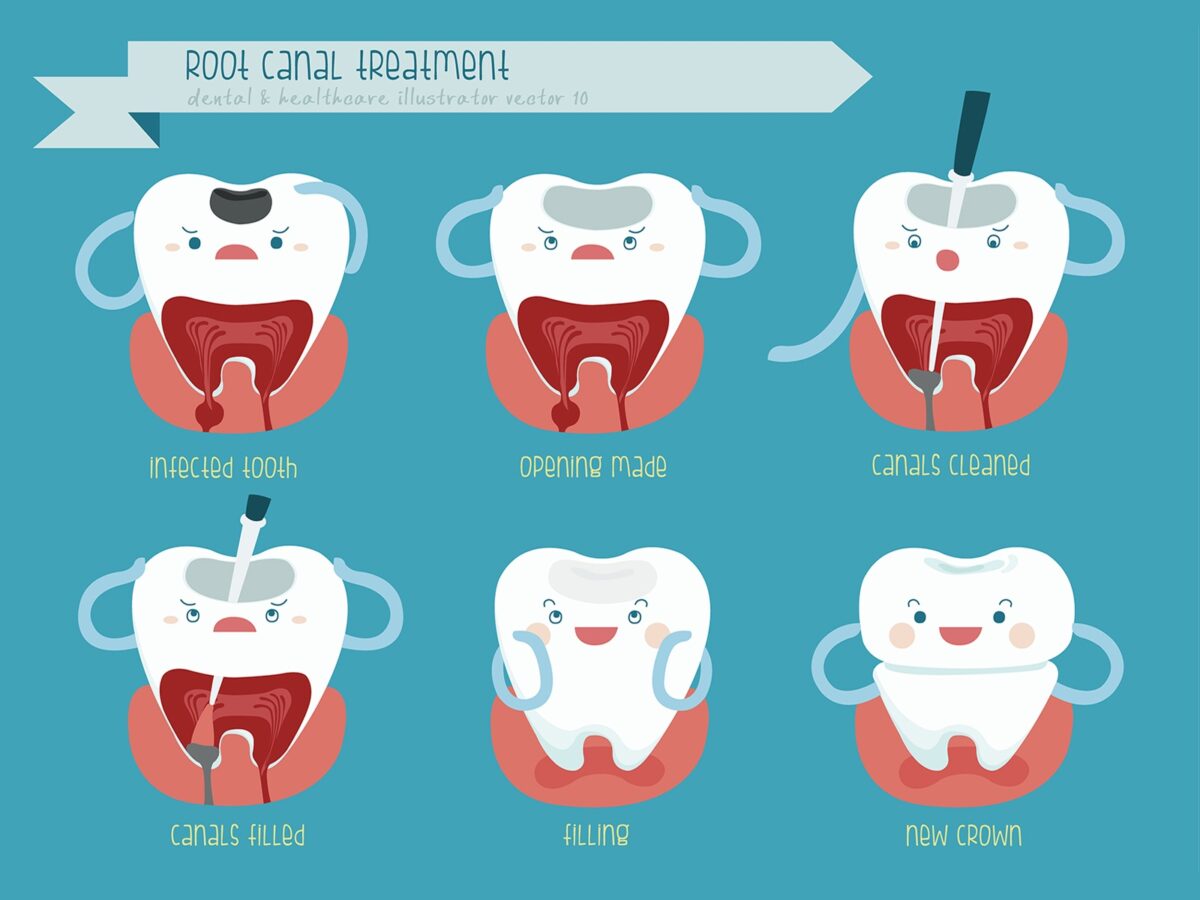Blog
Dental hygiene tips for healthy teeth & gums

Can You Naturally Heal a Tooth That Needs a Root Canal?
the root canal is one of the feared procedures in dentistry. Just the thought of getting your tooth drilled and its nerves removed raises many eyebrows. Also, some may turn their attention to whether there could be some natural ways to heal a tooth that is supposedly in need of a root canal. In this blog post, we will discuss the reality as regards the possibility of naturally healing such a tooth and talk about dental health realities.
What Is Root Canal?
Before examining natural healing processes, it’s important to understand what a root canal is and why it’s prescribed. A root canal is typically recommended when the soft tissue inside the tooth, known as the pulp, becomes infected or inflamed. This happens in cases of deep decay, repeated dental procedures on the tooth, or when there is a crack or chip in the tooth. Inside the pulp, there are nerves, blood vessels, and connective tissue. When one has an effect on this area, it can cause immense pain, and in untreated cases, it leads to an abscess.
Understanding Root Canal Procedure
In the process of root canal treatment, a dentist or endodontist will remove the much-damaged pulp, clean and shape the inside of the root canal meticulously, and then fill and seal the space. This is done to save the natural tooth and prevent further infection. It is a very established treatment with a very high success rate; in most cases, patients can keep their natural teeth for many more years or even throughout their lives.
Is Natural Healing possible?
Perhaps the invasion of a root canal is not such a desirable thing. In a search for the ability to avoid perceived pain and expense, many people turn to supposed natural methods of healing in hopes of circumventing the need for this particular procedure. Interest in these natural alternatives has prompted a number of claims regarding the potential for a tooth to heal itself, even after a dentist has suggested performing a root canal.
Can a Tooth Heal Itself?
This can also be answered by referring to the tooth structure and its self-healing capacity. Basically, as compared to other body parts, teeth have less healing capacity. In a tooth, the outer covering, which is called the enamel, cannot reproduce itself if it is damaged. However, the layer next to it, called dentin, has the capacity to generate a substance called secondary dentin in response to irritation or mild decay.
This very natural defense process does sometimes arrest a tooth’s decay, but cannot reverse major damage or infection that has penetrated to the pulp. Once bacteria have invaded into the pulp, then the tooth’s natural self-healing capabilities are very minimal.
Natural Approaches to Dental Health
Although a tooth that needs a root canal cannot ever fully heal on its own, there are some natural methods to build overall dental health and perhaps prevent the need for root canals in the future:
Diet for Dental Health
Vitamins and minerals can be used to strengthen teeth and enhance oral health. Vitamins and minerals in foods that are rich in calcium, phosphorus, and vitamin D are excellent for the teeth. Some studies have even indicated that vitamin K2 also plays a role in dental health by helping the body utilize or process calcium more effectively.
Oil Pulling
This is an ancient Ayurvedic procedure involving the rinsing of oil—most of the time, coconut or sesame—in the mouth for some minutes. While scientific evidence is limited, some persons have attested to its effectiveness in reducing bacteria in the mouth, hence fostering improved oral health.
Herbal Remedies
Herbs such as echinacea, oregano oil, and neem are believed to possess antibacterial activities that may prove helpful in the maintenance of dental health. These, however, should be given with utmost care and solely under the complete guidance of a professional.
Good Oral Hygiene Practices
The majority of dental issues can be easily avoided with good oral hygiene through regular brushing, flossing, and rinsing with mouthwash. These significantly curb plaque and bacteria, the causative agents for decay and infection.
The Limitations of Natural Healing
While all these natural methods no doubt work towards making one’s teeth healthier, there are some things these methods can’t do. By the time the decay reaches a point that a root canal is required, the natural remedies are not going to reverse such damage. If there is severe infection or inflammation in the pulp, professional intervention in the form of a dentist is called for to protect against further infection and loss of the tooth.
When Natural Healing Isn’t Enough
Now, if a dentist has diagnosed that you need a root canal, trying to heal the tooth naturally can be dangerous. If you wait too long to treat the problem, it will give time to increase the infection, which may result in :
1. More pain and discomfort
2. Further infection of surrounding tissues
3. Abscessing
4. Jaw bone loss
5. Ultimately, loss of your tooth
These consequences can then be more serious and expensive to treat than the root canal itself.
The Need for Professional Dental Care
While exploring alternative ways of dental care can certainly be valuable for general oral health, one does this in conjunction with professionals in this field. Regular check-ups allow dentists to discover issues and attend to them early on. In many cases, this could even prevent needing a root canal treatment.
If a dentist recommends a root canal, then he has professionally judged that the pulp of your tooth is severely damaged or infected. If your tooth is to be saved, this kind of treatment cannot be delayed, lest more serious consequences develop.
While the concept of healing a tooth requiring a root canal naturally might seem very appealing, bad dental conditions often need professional attention. Natural ways to care for dental health can be pretty effective in preventing tooth decay and maintaining overall oral health, but they are always going to be limited in providing treatment for serious dental problems.
All of the above things concerning dental health—good hygiene practices, a proper diet, and regular dental checkups—should all be put together. One could very easily bypass root canals and similar invasive procedures by just adopting a preventive approach to dental care. But if a dental professional says that you need this procedure, it is best to abide by their advice so that there are no bad experiences pertaining to dental health that may affect your overall health.
Keep in mind that your teeth are one of the most important elements of your overall health, and good care can set you up for a better life when older. While natural remedies have a place and can help support dental health, it is not meant to replace professional dental care where there are more serious issues.


